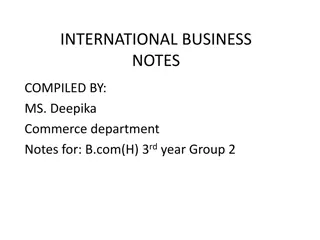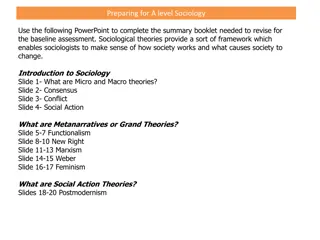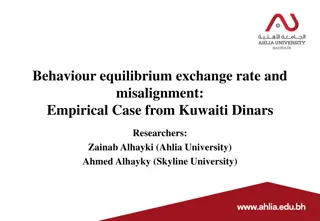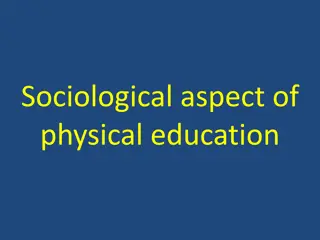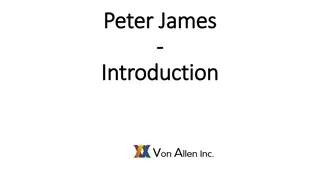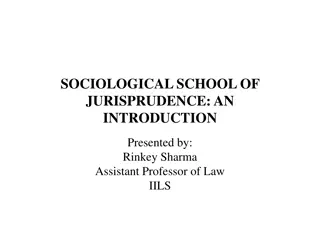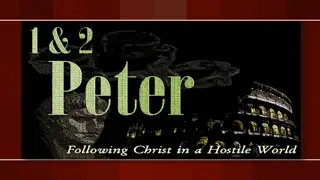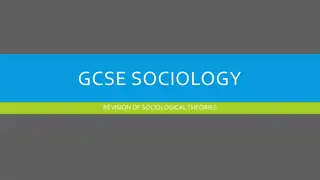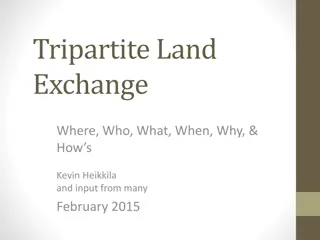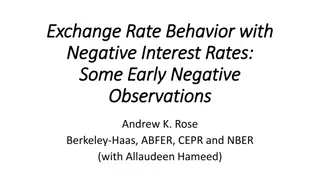Sociological Contributions of Peter Blau and Social Exchange Theory
Peter Michael Blau, an American sociologist, made significant contributions to social theory, particularly in exchange theory and organizational structures. His works, such as Dynamics of Bureaucracy and Bureaucracy in Modern Society, laid the foundation for understanding social phenomena. Blau's emphasis on social exchange theory highlighted the importance of negotiated exchanges in relationships and social stability.
Download Presentation

Please find below an Image/Link to download the presentation.
The content on the website is provided AS IS for your information and personal use only. It may not be sold, licensed, or shared on other websites without obtaining consent from the author.If you encounter any issues during the download, it is possible that the publisher has removed the file from their server.
You are allowed to download the files provided on this website for personal or commercial use, subject to the condition that they are used lawfully. All files are the property of their respective owners.
The content on the website is provided AS IS for your information and personal use only. It may not be sold, licensed, or shared on other websites without obtaining consent from the author.
E N D
Presentation Transcript
DR. SYED MEHDI ABBAS ZAIDI Department of Sociology Shia PG College,Lucknow
Peter Michael Blau (February 7, 1918 March 12, 2002) was an American sociologist and theorist. Born in Vienna, Austria, he immigrated to the United States in 1939. He completed doctoral thesis Merton at Columbia University in 1952, laying an early theory for the dynamics of bureaucracy One of Blau's contributions to social theory is his work regarding exchange theory, which explains social exchange directly relates to social structuresat a societal level. His sociological specialty was in organizational and social structures. He formulated theories relating to many aspects of social phenomena, including upward occupational opportunity, heterogeneity. his Robert PhD with K. most important how small-scale mobility, and
Major Works Dynamics of Bureaucracy (1955) Bureaucracy in Modern Society (1956) A Theory of Social Integration, "The American Journal of Sociology", Vol. LXV, No. 6, p. 545 (1960) A Theoryof Social Integration (1960) Formal Organizations: A Comparative Approach, with Richard Scott (1962) Exchange and Power in Social Life (1964) The Flow of Occupational Supply and Recruitment "American Sociology Review" (1965) The American Occupational Structure (1967) A Formal Theoryof Differentiation in Organizations (1970) The Organization of Academic Work (1973) Presidential Address: Parameters of Social Structure "American Sociology Review" (1974) On the Nature of Organizations (1974)
Background Social exchange theory was introduced in 1958 by the sociologist George Homans with the publication of his work "Social Behavior as Exchange After Homans founded the theory, other theorists continued to write about it, particularly Peter M. Blau and Richard M. Emerson, who in addition to Homans are generally thought of as the major developers of the exchange perspective within sociology Peter Blau - social exchange theory more towards the economic and utilitarian perspective, whereas Homans focused on reinforcement principles which presuppose individuals base their next social move on past experiences. Blau felt that if individuals focused too much on the psychological concepts within the theory, they would refrain from learning the developing aspects of social exchange
Exchange Theory Peter Blau expanded Homan s theory by extending it to more complex issues like, social structures, organisation, and bureaucracy. Social exchange theory is a social-psychological and sociological perspective that explains social change and stability as a process of negotiated exchanges between parties Social exchange theory posits that human relationships are formed by the use of a subjective cost-benefit analysis and the comparison of alternatives. The theory has roots in economics, psychology and sociology
Basic Exchange Principles Blau employs the basic concepts of all exchange theories- Reward, Cost and Profit Cost and rewards social exchange models assume that rewards and costs drive relationship decisions Both parties in a social exchange take responsibility for one another and depend on each other. The elements of relational life include: Costs are the elements of relational life that have negative value to a person, such as the effort put into a relationship and the negatives of a partner- (Costs can be time, money, effort etc.) Rewards are the elements of a relationship that have positive value. (Rewards can be sense of acceptance, support, and companionship etc.) Worth = Rewards Costs If worth is a positive number, it is a positive relationship, a negative number indicates a negative relationship
Social Exchange Positive relationships whereas terminate. Mutual relationship satisfaction ensures relationship stability Outcome = Rewards Cost are expected to endure, relationships negative will probably
Blaus Implict Exchange Principles 1. The rationality Principles The more profit people expect from one another in emitting a particular activity, the more likely they are to emit that activity 2 . The reciprocity Principles A. The more people have exchanged rewards with one another, the more likely are reciprocal obligations to emerge and guide subsequent exchanges among these persons. B. The more the reciprocal, eligation of an exchange relationship are violated, the more are deprived parties disposed to sanction negatively those violating the norm of reciprocity. 3. The Justice Principles A. The more exchange relations have been established, the more likely they are to be governed by norms of fair exchange. B. The less norms of fairness are realized in an exchange, the more are deprived parties disposed to sanction negatively those violating the norms
Blaus Implict Exchange Principles 4.The Marginal Utility Principles The more expected rewards have been forthcoming from the emission of a particular activity, the less valuable is the activity, and the less likely is its emission 5. The Imbalance principle The more stabilized and balanced are some exchange relations among social units, the more likely are other exchange relations to become imbalanced and unstable
Refrences Blau, Peter . "Exchange and Power in Social Life". 1st edition. 1. New York: John Wiley and Sons, Inc, 1964. Print Ritzer, George. SociologicalTheory .5th edition, McGraw Hill Education ,2011. Turner, Jonathan H. The Structure of Sociological Theory .4th edition, The Dorsey Press,1987. Rawat Publication ,reprinted,2015.





